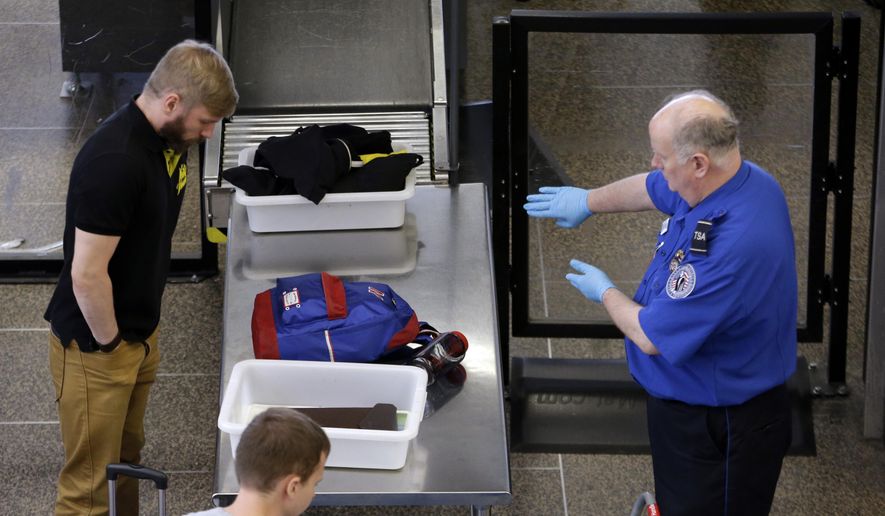The most recent round of covert testing of airport security checkpoints produced “disappointing and troubling” results, according to the Department of Homeland Security’s inspector general.
The findings were made after a June disclosure of major security failures within the Transportation Security Administration’s screening process that led to the ousting of the agency’s acting director.
Investigators who ran tests at eight airports during an unspecified time attributed screeners’ failure to detect anomalies and potential security threats to problems with technology, TSA procedures and human error.
“We found layers of security simply missing,” said Homeland Security Inspector General John Roth, describing results of the latest classified audit during a hearing Tuesday before a Senate committee.
Details about the security failures and the screened airports were not disclosed because the information is considered classified.
Newly appointed TSA Administrator Peter Neffenger said “a disproportionate focus on speed and efficiency in screening operations rather than security effectiveness” was hampering security performance across the agency.
As part of the changes he has made since taking charge of the agency, Mr. Neffenger said, security screeners and management have undergone renewed training that focuses on specific failures detected in covert tests.
During testimony before the Homeland Security subcommittee on appropriations, Mr. Neffenger said TSA put a stop to other tactics used at airport screenings that created “greater risk” to the system, including the practice of randomly allowing people who were not vetted through the TSA PreCheck program to go through expedited screening.
“That process has stopped as of Sept. 12. We no longer do that,” said Mr. Neffenger, noting that 14 percent of the daily traveling population was put into expedited screening lines.
The TSA also made a request that funding for security staff be kept at current levels rather than reduced by approximately 600 employees as planned for the coming year.
In June, covert security test results that were leaked showed undercover investigators were able to smuggle mock explosives or banned weapons through checkpoints 95 percent of the time. Investigators also found that 73 people were able to obtain federal approval to work in secure areas at airports despite having unspecified connections to terrorism.
The investigations led Homeland Security Secretary Jeh Johnson to reassign TSA Director Melvin Carraway and to demand that the TSA come up with new screening procedures aimed at fixing the “specific vulnerabilities” that the inspector general found.
On Tuesday, Mr. Neffenger said the latest round of training for TSA security officers accomplished a lot to address the specific issues raised and that he also was working to develop a process to maintain strict security standards.
“The day you set a security system and say ’I got it right’ is the day you begin to lose its effectiveness,” he said, noting the evolving nature of terrorism threats.
He said the TSA also is exploring “queue management” techniques that can help maintain the flow of airline passengers without compromising security.
• Andrea Noble can be reached at anoble@washingtontimes.com.




Please read our comment policy before commenting.